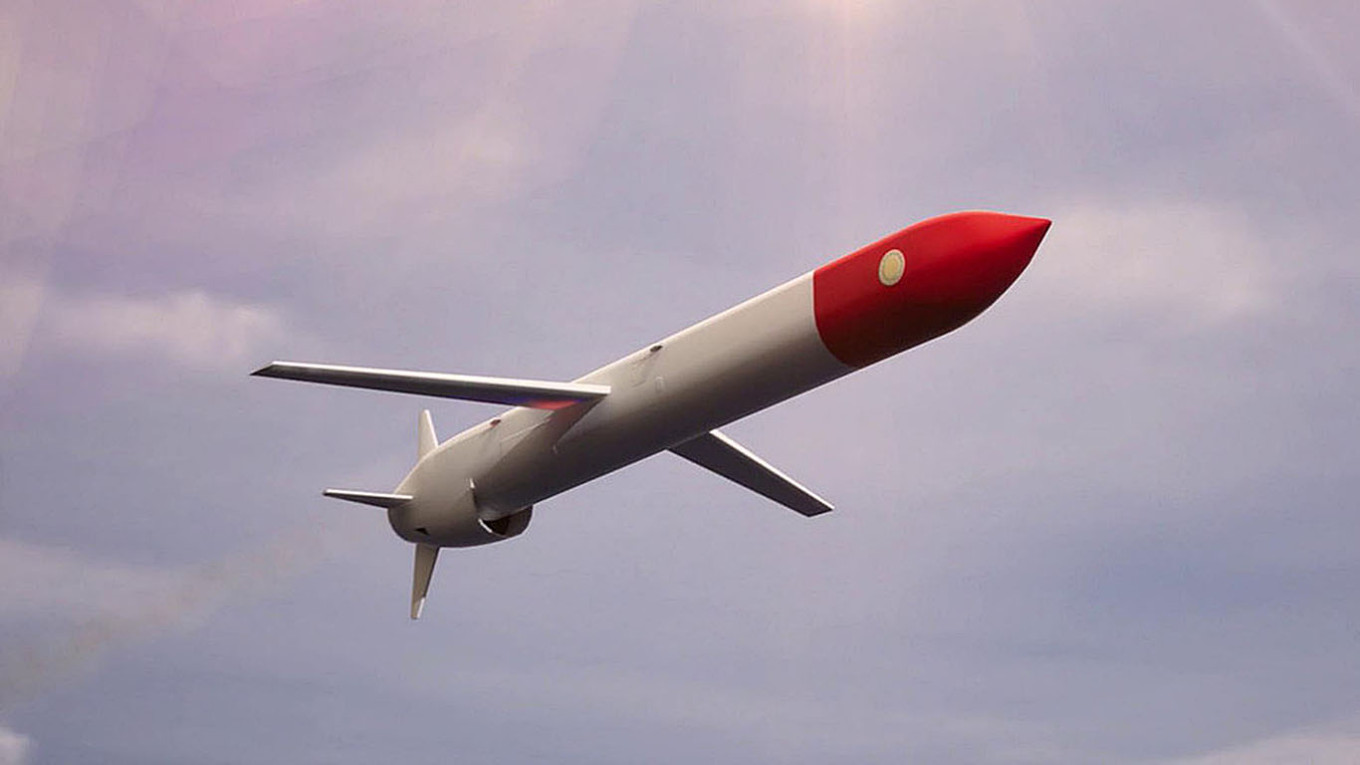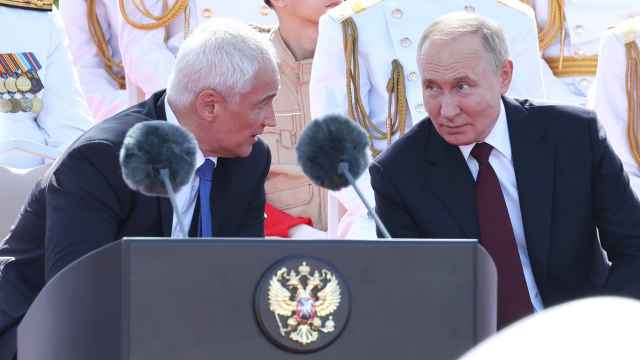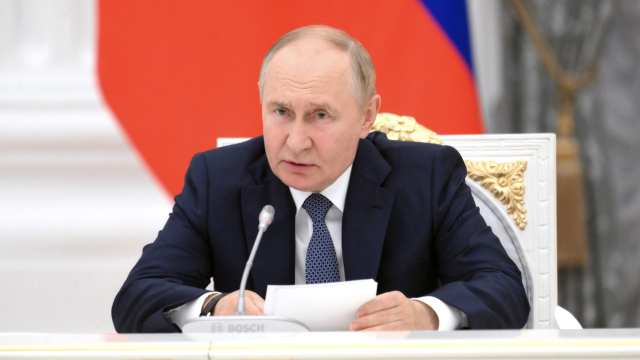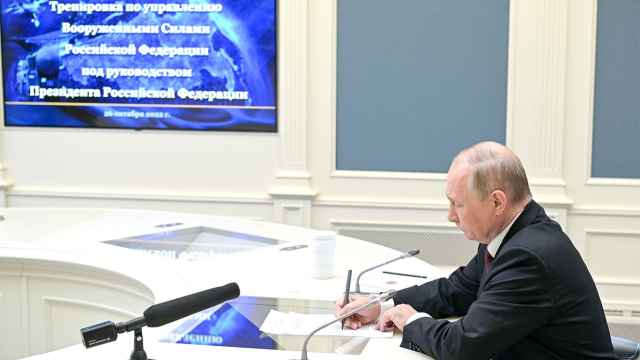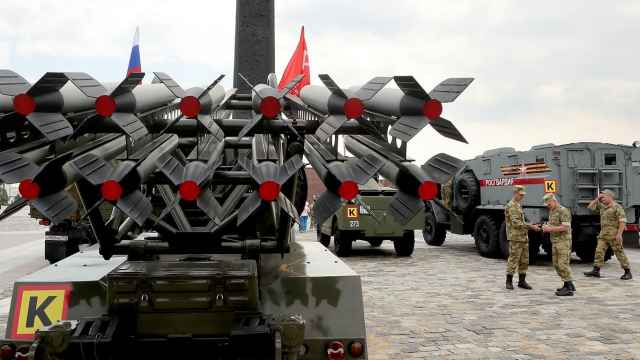Russia announced Sunday that it had successfully carried out a final test of its Burevestnik nuclear-powered cruise missile, a move that came amid Moscow’s ongoing war in Ukraine and uncertainty over a new peace summit with U.S. President Donald Trump.
President Vladimir Putin described the missile as “a unique weapon that no other country possesses,” claiming it has “unlimited range.” He also ordered the preparation of “infrastructure to put this weapon into service in the Russian Armed Forces.”
The Moscow Times looks at the Burevestnik’s capabilities and what the timing of the latest test launch might signify:
Burevestnik
The Burevestnik is one of six strategic weapons unveiled by Putin in 2018 as part of Russia’s new nuclear arsenal. At the time, he hailed it as an “invincible” weapon with virtually unlimited range, capable of evading American missile defenses.
Apart from its declared unlimited range, experts say the Burevestnik has another advantage — the ability to strike from unpredictable directions, which would theoretically allow it to bypass a future U.S. missile-defense system.
Yet experts and analysts have questioned the missile’s practicality and the advantages it offers over existing systems.
The Burevestnik “is very similar to other cruise missiles developed in Russia,” Pavel Podvig, director of the Russian Nuclear Forces Project, told The Moscow Times. “Its main feature is apparently a nuclear-powered engine, which gives it the capability for nearly unlimited range.”
The independent business outlet The Bell called Burevestnik “an extremely expensive” weapon with “doubtful practical value.”
“The main reason nobody has built this system is that it's not a very effective weapon, so there is simply no real justification for building something like that,” Podvig said, agreeing that it is difficult to see a practical role for such a weapon.

While its exact cost has not been disclosed, The Bell said it is comparable to that of the Bulava submarine-launched ballistic missile, which has a price tag of around $10 billion.
Jeffrey Lewis, a nuclear nonproliferation expert at the Middlebury Institute denied that the Burevestnik is “invincible” and said that “NATO aircraft could intercept it.”
“The problem is that Burevestnik is just another step in an arms race that offers no real advantage to either side,” Lewis wrote on X.
Testing
Video footage released by the Kremlin on Sunday showed Putin in military camouflage alongside Chief of the General Staff Valery Gerasimov, who informed Putin of the Burevestnik test conducted on Oct. 21.
The missile flew for some 15 hours and traveled 14,000 kilometers, according to Gerasimov, who added that the weapon’s maximum range is even higher.
“During the flight, the missile completed all prescribed vertical and horizontal maneuvers, showcasing a high capability to evade missile-defense and air-defense systems,” Gerasimov said.
“Burevestnik’s technical characteristics generally allow for its use with assured accuracy against highly protected targets at any range,” he said.
The Burevestnik already made headlines in 2019 after a reported failed test led to a deadly recovery mission in the Arkhangelsk region.
At the time, Russia’s meteorological agency Roshydromet reported radiation levels there exceeding the norm by four to 16 times following an explosion at the test site that killed five people.
Confirmation of this month’s Burevestnik tests came after months of satellite imagery and navigation warnings indicating an impending launch.
‘Inappropriate’ weapon
Trump on Monday criticized his Russian counterpart’s announcement of a nuclear-powered cruise missile test as being "not appropriate," given Washington’s efforts to negotiate a peace deal in Ukraine.
"He ought to get the war [in Ukraine] ended. A war that should have taken one week is now soon in its fourth year. That's what he ought to do instead of testing missiles," Trump told journalists onboard Air Force One.
Kremlin spokesman Dmitry Peskov told reporters that “there is nothing here that could or should ‘strain’ relations between Moscow and Washington, especially given that these relations are already at a minimal level.”
But former Russian diplomat Boris Bondarev said Moscow’s announcement of the latest Burevestnik test “was hardly coincidental.”
In an op-ed for The Moscow Times, Bondarev noted that it “coincided strikingly” with new U.S. sanctions on Russian oil companies and NATO’s Steadfast Noon nuclear exercises this month.
Podvig, however, was reluctant to link the test’s timing to geopolitical developments.
“These are big programs that involve a lot of people and equipment,” Podivg said. “I don't think that they would try to time it with any kind of a particular political development of the moment — it's just very difficult.”
According to Podvig, the way Russia presented its nuclear modernization in 2018 was strategic.
“It was framed as a response to U.S. efforts to build missile defense. In the view of the Russian president — and I think the Russian leadership in general — the U.S. missile defense effort was intended to deny Russia its retaliatory capability,” Podvig told The Moscow Times.
Russia, he added, appears to see U.S. missile defense as a threat capable of undermining its strategic deterrent.
“The mission [of the Burevestnik] is to give the Russian president the ability to say: ‘we have systems that simply aren’t affected by your missile defense’,” Podvig said.
A Message from The Moscow Times:
Dear readers,
We are facing unprecedented challenges. Russia's Prosecutor General's Office has designated The Moscow Times as an "undesirable" organization, criminalizing our work and putting our staff at risk of prosecution. This follows our earlier unjust labeling as a "foreign agent."
These actions are direct attempts to silence independent journalism in Russia. The authorities claim our work "discredits the decisions of the Russian leadership." We see things differently: we strive to provide accurate, unbiased reporting on Russia.
We, the journalists of The Moscow Times, refuse to be silenced. But to continue our work, we need your help.
Your support, no matter how small, makes a world of difference. If you can, please support us monthly starting from just $2. It's quick to set up, and every contribution makes a significant impact.
By supporting The Moscow Times, you're defending open, independent journalism in the face of repression. Thank you for standing with us.
Remind me later.



